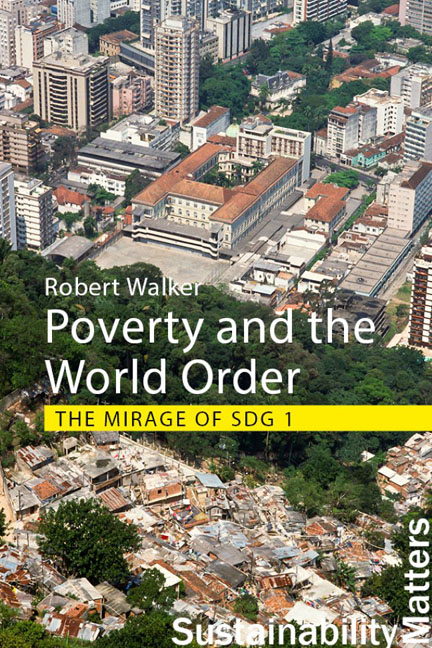Book contents
- Frontmatter
- Contents
- List of figures, tables and case studies
- 1 SDG1 and the nature of poverty
- 2 Progress to 2015
- 3 The origins of SDG1
- 4 Progress since 2015
- 5 The impact of Covid-19
- 6 Tackling the root causes of poverty
- 7 Global governance and its limitations
- 8 Relying on “we the people”
- 9 Towards a moral world order
- 10 A postscript
- Glossary
- References
- Index
1 - SDG1 and the nature of poverty
Published online by Cambridge University Press: 23 January 2024
- Frontmatter
- Contents
- List of figures, tables and case studies
- 1 SDG1 and the nature of poverty
- 2 Progress to 2015
- 3 The origins of SDG1
- 4 Progress since 2015
- 5 The impact of Covid-19
- 6 Tackling the root causes of poverty
- 7 Global governance and its limitations
- 8 Relying on “we the people”
- 9 Towards a moral world order
- 10 A postscript
- Glossary
- References
- Index
Summary
Only a special kind of person would pick up and start reading a book on the Sustainable Development Goals (SDGs). Few people have ever heard of the goals and even fewer know much about them (Hudson et al. 2020; Tedeneke 2019).
This immediately points to a major challenge. The SDGs were launched as part of the United Nations’ 2030 Agenda for Sustainable Development in 2015, accompanied by an official video entitled “We the People”. There are 17 goals of which the first, No Poverty, is the focus of this volume (Figure 1.1).
The agenda and video offered “a globally shared development program, involving the whole population in a common mission aimed to put an end to any form of poverty, to fight against inequalities and to face climate change” (Smaniotto et al. 2020: 2). The 2030 Agenda is approaching its halfway stage but, seemingly, without many of us – “we the people” – being aware of the need for our involvement.
The goals and 169 targets to be achieved by 2030 truly do present a “supremely ambitious and transformational vision”, one that is relevant and should be important to everyone. They aim:
to end poverty and hunger everywhere; to combat inequalities within and among countries; to build peaceful, just and inclusive societies; to protect human rights and promote gender equality and the empowerment of women and girls; and to ensure the lasting protection of the planet and its natural resources; … to create conditions for sustainable, inclusive and sustained economic growth, shared prosperity and decent work for all, taking into account different levels of national development and capacities.
(UN 2015a: para. 3)Unlike the Millennium Development Goals (MDGs) that the SDGs replaced, they are “universal goals and targets which involve the entire world, developed and developing countries alike. They are integrated and indivisible and balance the three dimensions of sustainable development [economic, social, and environmental]” (UN 2015a: para. 4). Even so, each country is required to assume “primary responsibility for its own economic and social development” and each government must set “its own national targets guided by the global level of ambition but taking into account national circumstances” (UN 2015a: para. 55).
- Type
- Chapter
- Information
- Poverty and the World OrderThe Mirage of SDG 1, pp. 1 - 18Publisher: Agenda PublishingPrint publication year: 2023



